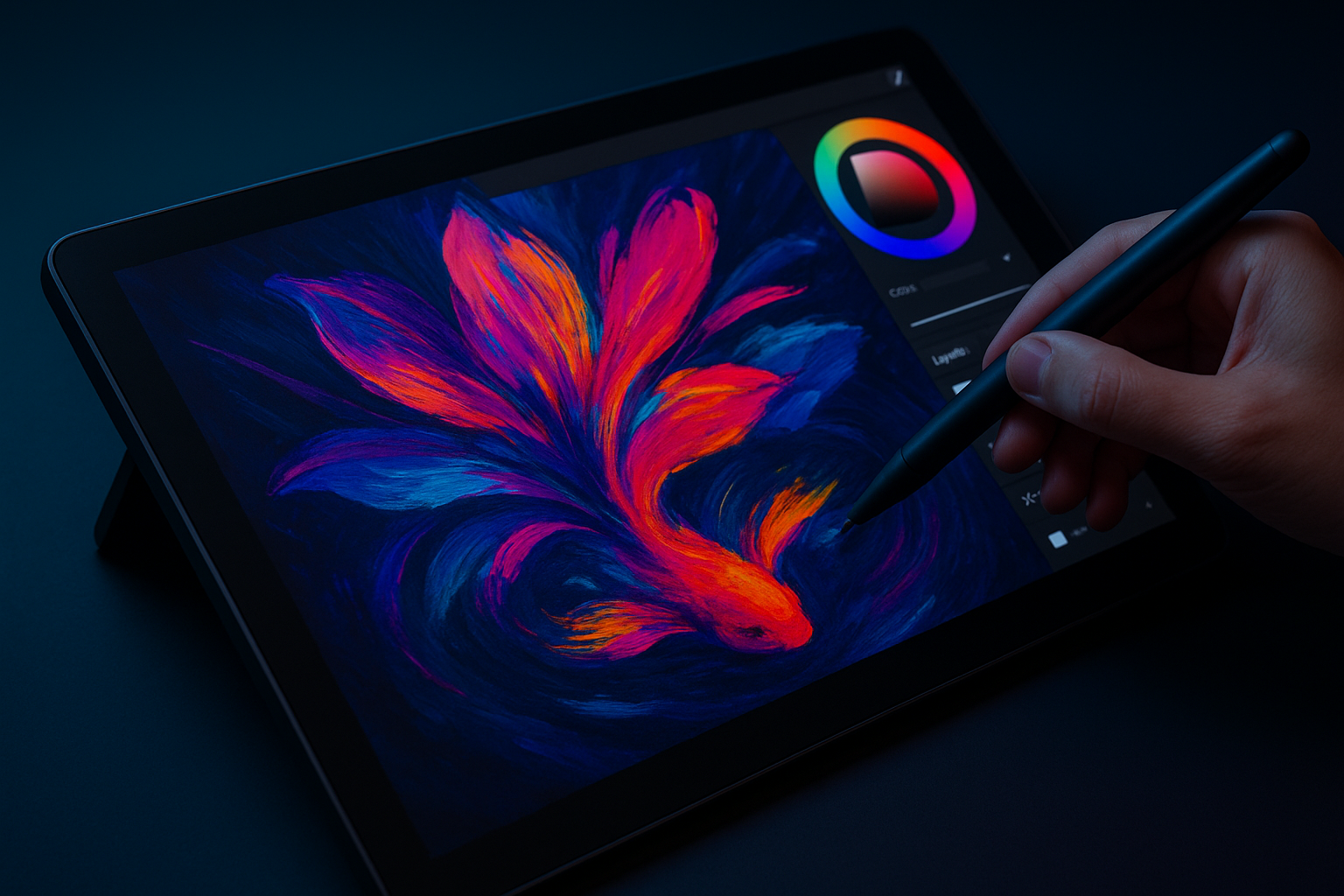| Image | Product | Features | Price |
|---|---|---|---|
 | XPPen 13.3 |
| Check Price |
 | Amazon Fire Max 11 |
| Check Price |
 | XP-PEN Artist12 |
| Check Price |
 | PicassoTab X |
| Check Price |

Subtitle for This Block
Text for This Block
Best Tablets 2025
If you want a tablet that actually feels like drawing, a pen display is the sweet spot—plug it into your laptop/desktop and you’re sketching directly on a laminated screen with pressure, tilt and shortcut keys. For all-in-one portability (apps, battery, speakers), a standalone tablet is better for notes, light sketching, and content consumption. Below are the four that give creators the most value right now.
How to choose (screen & size). For a pen display, prioritize a fully-laminated panel (minimal parallax), matte/anti-glare finish for paper-like friction, and at least 1080p at 11–13″ or 1440p/4K at 15–16″ if you need finer line control. Built-in shortcut keys/dials speed up zoom/brush/undo, and an adjustable stand (or VESA arm) keeps posture neutral during long sessions. For standalone tablets, look for AMOLED/LCD with good brightness, robust stylus support, and enough RAM/storage to run your art apps smoothly.
Pen tech & feel. Pen performance matters more than headline pressure levels. EMR pens (no battery) often deliver the most natural feel, low latency, and excellent tilt; AES/Bluetooth pens can be great too if the report rate and initial activation force (IAF) are tuned well. Seek tilt ±60°, fast polling, and stable stroke initiation for precise hatching and slow curves. Spare nibs (felt + hard) let you tune texture; a well-tuned pen makes line weight, shading, and inking consistent across apps.
Color accuracy & calibration. If you share or print art, target ≥100% sRGB coverage; illustrators and colorists benefit from wide-gamut (DCI-P3/Adobe RGB) and a Delta E <2 after calibration. Use a hardware calibrator or at least app-based profiles, and keep true-tone/auto color features off while painting. Consistent luminance (e.g., 120 nits in a dim studio) plus a neutral white point reduces eye strain and keeps colors predictable from sketch to final render.
Workflow & setup tips. Install drivers, map the pen area to your canvas monitor, and assign brush size/zoom/rotate to your dial/keys. In apps like Photoshop, Clip Studio, Krita, Procreate, build a custom brush set and gesture map so muscle memory does the heavy lifting. Add a glove, matte protector, and a USB-C single-cable setup (if supported) to declutter. Back up brushes/palettes with cloud sync, and keep a travel kit (nibs, pen, cable, stand) so your drawing tablet is always ready for commissions on the go.
Best Overall — XP-Pen Artist 13.3 Pro. This is the artist’s workhorse: a 13.3″ fully-laminated FHD panel, tilt support (±60°) for natural shading, and a Red Dial + 8 shortcuts to speed your workflow. Color is strong for the price (wide gamut), and the laminated glass eliminates parallax so your strokes land where your pen tip is. It requires a computer (Photoshop, Clip Studio, Krita, etc.), but that’s exactly why it punches above its weight for serious illustration.
Runner-up — Amazon Fire Max 11. As a standalone device, it’s the productivity/entertainment all-rounder. You get an 11″ 2000×1200 display, snappy octa-core performance, long battery life and the Made for Amazon Stylus Pen with magnetic attach—great for notes, ideation and casual sketching. It’s not a color-critical pen display, but for everyday use it’s the most versatile “tablet + pen” combo at this price.
Compact & Budget — XP-PEN Artist12 and PicassoTab X. The Artist12 keeps the pen-display magic in a smaller 11.6″ 1080p body (anti-glare film pre-installed, P06 passive pen, 6 keys, extra nibs). Ideal for students and small desks—again, it needs a computer. The PicassoTab X is the value “everything-in-the-box” starter kit (pen, case, glove, screen protector and apps). It’s the classroom/first-tablet pick for animation and notes, trading pro power for affordability.